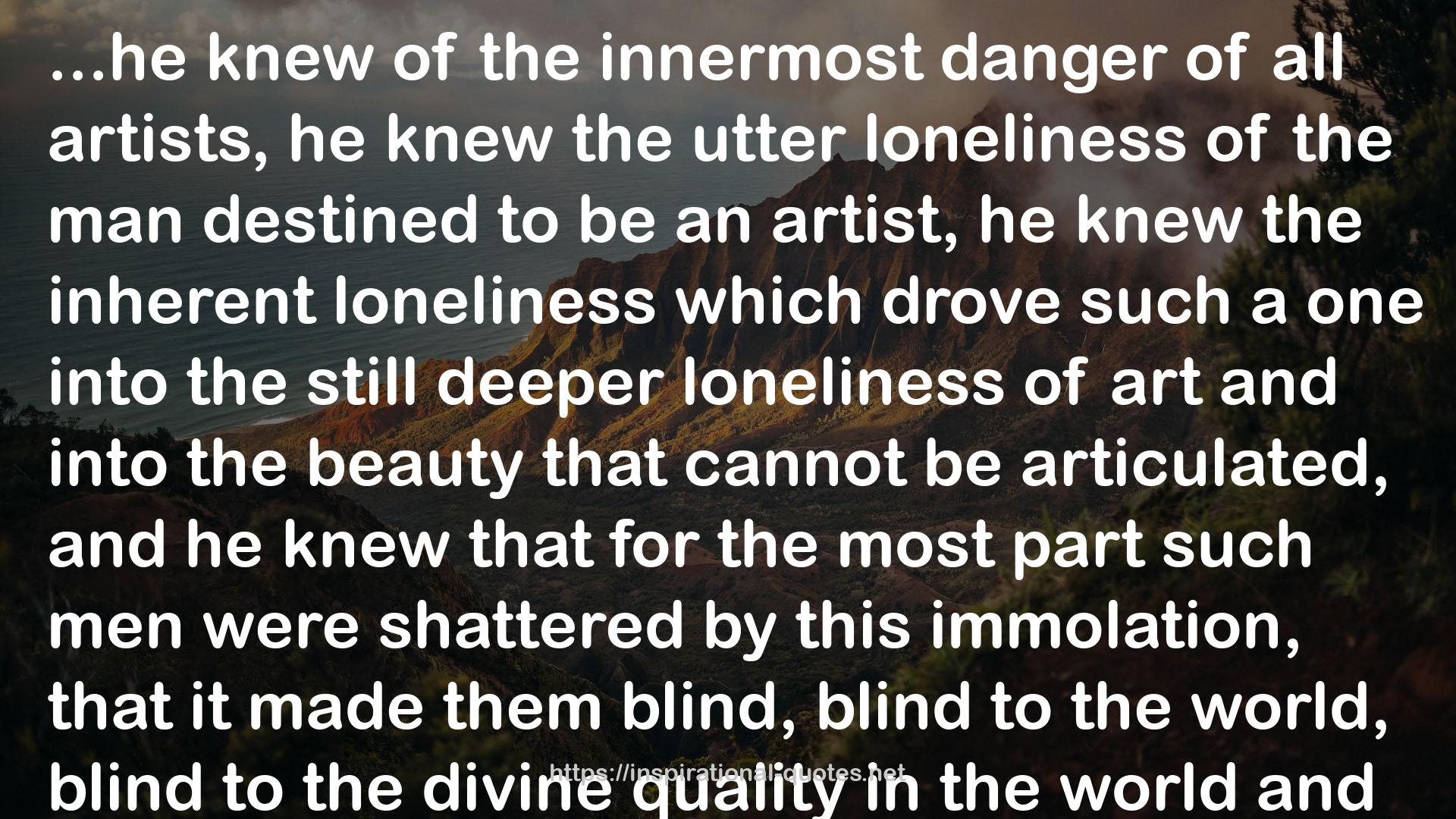" ...he knew of the innermost danger of all artists, he knew the utter loneliness of the man destined to be an artist, he knew the inherent loneliness which drove such a one into the still deeper loneliness of art and into the beauty that cannot be articulated, and he knew that for the most part such men were shattered by this immolation, that it made them blind, blind to the world, blind to the divine quality in the world and in the fellow-man, that--intoxicated by their loneliness--they were able to see only their own god-likeness, which they imagined to be unique, and consequently this self-idolatry and its greed for recognition came more and more to be the sole content of their work--, a betrayal of the divine as well as of art, because in this fashion the work of art became a work of un-art, an unchaste covering for artistic vanity, so spurious that even the artist's self-complacent nakedness which it exposed became a mask; and even though such unchaste self-gratification, such dalliance with beauty, such concern with effects, even though such an un-art might, despite its brief unrenewable grant, its inextensible boundaries, find an easier way to the populace than real art ever found, it was only a specious way, a way out of the loneliness, but not, however, an affiliation with the human community, which was the aim of real art in its aspiration toward humanity, no, it was the affiliation with the mob, it was a participation in its treacherous non-community, which was incapable of the pledge, which neither created nor mastered any reality, and which was unwilling to do so, preferring only to drowse on, forgetting reality, having forfeited it as had un-art and literarity, this was the most profound danger for every artist; oh how painfully, how very painfully he knew this. "
― Hermann Broch , The Death of Virgil
